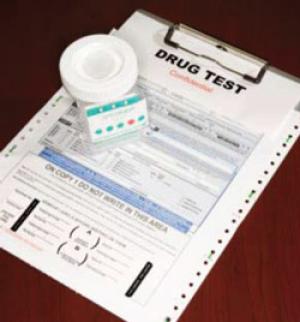In a ruling out of Orlando Tuesday, US District Court Judge Mary Scriven permanently halted enforcement of Florida's suspicionless drug testing of welfare applicants and recipients. The 2011 law had been in abeyance since a preliminary injunction was issued against it earlier.

The law required anyone applying for welfare benefits to undergo a drug test without any particularized suspicion that he or she was using drugs. The federal courts have been loath to okay suspicionless drug testing, with a few notable exceptions for workers in public safety positions and some school kids.
Luis Lebron, the plaintiff in the case, who is also the sole caretaker of his disabled mother, was a 35-year-old full-time student at the University of Central Florida when he applied for temporary assistance in July 2011, to support his then 4-year-old son. When informed that he would be subjected to a humiliating and invasive search without cause or suspicion, Lebron refused to waive his Fourth Amendment rights against unreasonable search and seizure by submitting to the newly-required drug test.
"I'm really pleased with the court's decision," said Lebron. "This confirms what I believed all along -- that what the government was asking people like me and my family to do was wrong. I'm proud that standing up against that is going to make a difference for other families like mine."
"This is a victory not just for Luis and his family, but for all Floridians who would have been forced to submit to invasive and humiliating searches of their bodily fluids just because they need temporary help making ends meet," stated Maria Kayanan, Associate Legal Director of the ACLU of Florida and lead attorney on the case. "In reconfirming that the Fourth Amendment protects all of us, regardless of wealth or status, Judge Scriven's decision soundly rejects the notion that the government can treat an entire class of Floridians like suspected criminals simply for being poor. We are thrilled to ring in the New Year with the Court's opinion."
"The Court today affirmed that the 4th Amendment protects everyone, including those who need temporary assistance from the government," stated Randall Berg of the Florida Justice Institute and co-counsel with the ACLU. "Requiring suspicionless drug testing of TANF recipients is a slippery slope toward requiring drug testing for the receipt of any kind of government benefit, including social security, farm subsidies, and student scholarships. A clear line must be drawn, and the court did so today."
Gov. Rick Scott (R) said he would appeal the decision.
This work by StoptheDrugWar.org is licensed under Creative Commons Attribution-ShareAlike 4.0 International
Comments
Gov. Rick Scott (R) said he
Gov. Rick Scott (R) said he would appeal the decision. NO HE DIDN"T.... lol Wonder what would happen if he put forward this much time and money into job growth ? Just asking ...
Why does it seem the higher
ACLU Illinois WON'T sue as it has in Indiana, Florida Etc
I and other Illinois Medicaid recipients want to challenge our state's policy of requiring physicians to print out a treatment contract found at a link on the state's prior authorization form for its "Long Term Opioid Use Program" that doctors are then expected to have patients sign in order to have the prescribed medications paid for. On Thursday, May 9th, 2014 I have a hearing of an October 2013 appeal I filed of the countless denials I've received because I refuse to sign my 4th Amendment rights away. Please help us find legal assistance. I am a chronically ill single granny with disabilities raising 3 grands for 10 years with only SSI and child-only TANF and have self paid for my doctor's visit, meds for 2 1/2 years to the tune of almost 400 of my 1000 a month income and I can't keep it up! Help! :*(
Add new comment